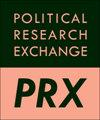Military integration and intelligence capacity: informational effects of incorporating former rebels
IF 1.8
Q2 POLITICAL SCIENCE
引用次数: 1
Abstract
ABSTRACT Military integration seeks to improve counterinsurgency and peacebuilding outcomes by incorporating former rebels into preexisting or new state security forces during or after civil wars. While peacebuilders continue to promote military integration, there is mixed evidence about its effectiveness and the mechanisms through which it affects counterinsurgency and peace duration. One underexplored mechanism is the effect of military integration on intelligence capacity and the information available to security forces. Information is key to successful counterinsurgency and peacebuilding efforts, and I argue that military integration of ex-rebels can improve intelligence capacity by providing gains in knowledge of human and physical geography, access to preexisting social networks and informants, and knowledge of the relative effectiveness of government and rebel tactics. I illustrate these improvements with evidence from conflicts across time and space and brief case narratives from the Philippines, Uganda, and Rwanda. I conclude by discussing policy implications, cases of unsuccessful integration and negative effects on intelligence, and questions for future research on the intelligence aspect of military integration.军事整合与情报能力:整合前叛军的信息效应
军事一体化旨在通过在内战期间或之后将前叛乱分子纳入先前存在的或新的国家安全部队来改善反叛乱和建设和平的结果。虽然和平建设者继续推动军事一体化,但关于其有效性及其影响平叛和和平持续时间的机制,证据不一。一个未被充分探讨的机制是军事一体化对情报能力和安全部队可获得的信息的影响。信息是成功平叛和和平建设的关键,我认为,前叛军的军事整合可以通过提供人文和自然地理知识、获取已有的社会网络和线人以及了解政府和叛军战术的相对有效性来提高情报能力。我用来自不同时间和空间的冲突的证据以及来自菲律宾、乌干达和卢旺达的简短案例叙述来说明这些改进。最后,我讨论了政策影响、不成功的整合案例和对情报的负面影响,以及未来军事整合情报方面研究的问题。
本文章由计算机程序翻译,如有差异,请以英文原文为准。
求助全文
约1分钟内获得全文
求助全文

 求助内容:
求助内容: 应助结果提醒方式:
应助结果提醒方式:


